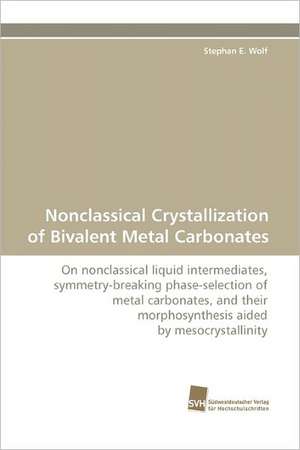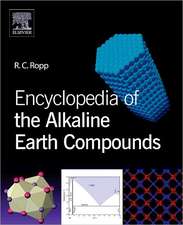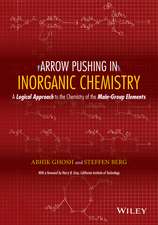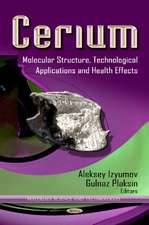Nonclassical Crystallization of Bivalent Metal Carbonates
Autor Stephan E. Wolfen Limba Engleză Paperback – 29 iun 2015
Preț: 356.76 lei
Nou
Puncte Express: 535
Preț estimativ în valută:
68.26€ • 71.27$ • 56.50£
68.26€ • 71.27$ • 56.50£
Carte tipărită la comandă
Livrare economică 04-18 aprilie
Preluare comenzi: 021 569.72.76
Specificații
ISBN-13: 9783838125398
ISBN-10: 3838125398
Pagini: 120
Dimensiuni: 152 x 229 x 7 mm
Greutate: 0.19 kg
Editura: Sudwestdeutscher Verlag Fur Hochschulschrifte
ISBN-10: 3838125398
Pagini: 120
Dimensiuni: 152 x 229 x 7 mm
Greutate: 0.19 kg
Editura: Sudwestdeutscher Verlag Fur Hochschulschrifte
Notă biografică
S. E. Wolf studied chemistry in Mainz and graduated in 2005(Dipl.-Chem.). He received his doctorate (Dr. rer. nat.)in 2009 for his studies on nonclassical crystallizations whichwere supported by the Konrad Adenauer-Foundation. Recently, hejoined as a DFG postdoctoral fellow the group of F. Marin at theUMR Biogéosciences of the CNRS in Dijon.









